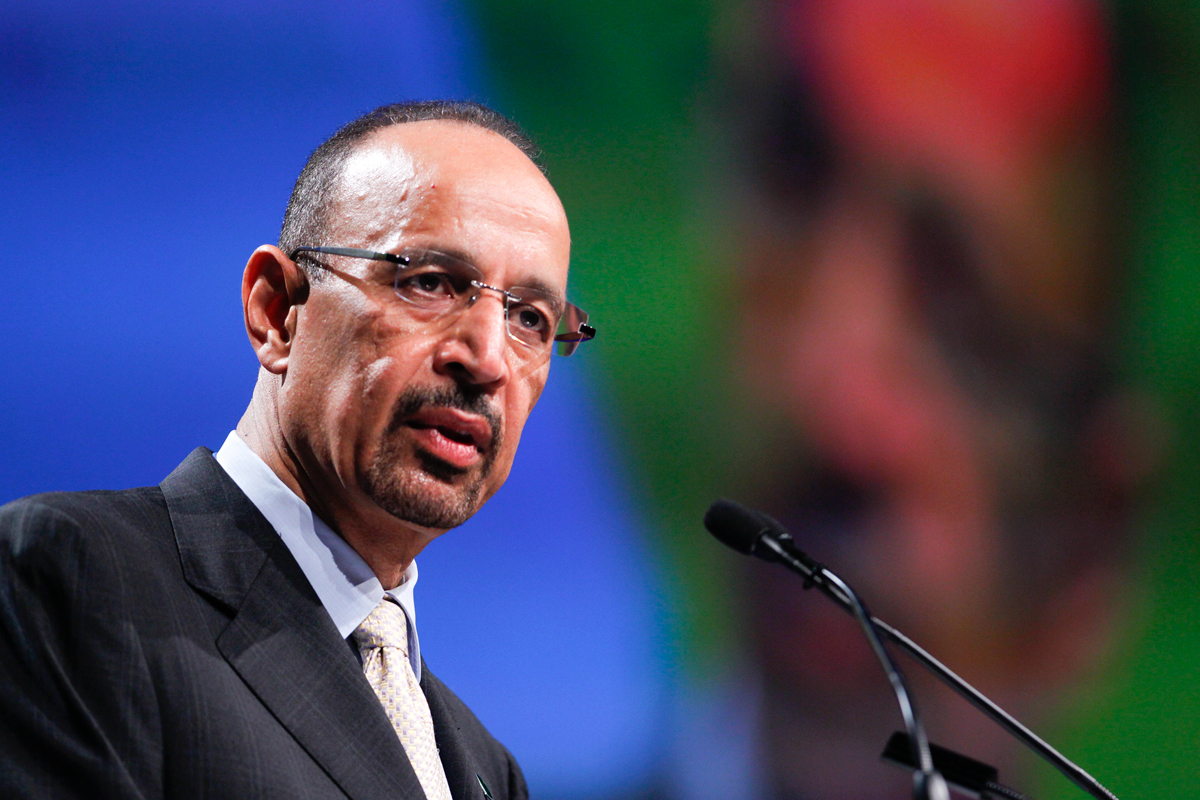Eksplorasi.id – The world is squeezing more from the energy it uses even though markets are awash in cheap oil and natural gas, a report from the International Energy Agency showed.
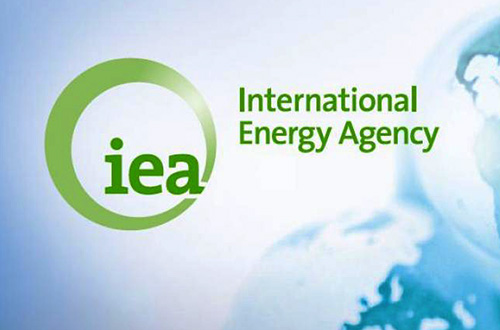
Energy intensity, which measures the amount of fuel consumed per unit of gross domestic product, fell 1.8 percent last year, triple the average rate over the past decade and more than the 1.5 percent reduction in 2014, the Paris-based IEA said Monday.
Investment in efficiency measures totaled $221 billion last year, about 66 percent more than was spent on building conventional power generation.
The findings will help nations meet their ambitions of reducing greenhouse gases while limiting energy costs and spreading electricity to more of the poorest communities. The IEA has been prodding governments to put efficiency at the heart of their energy policies, saying it’s often the cheapest way to achieve them.
“It’s becoming increasingly clear that energy efficiency needs to be central in energy policies,” said Fatih Birol, executive director of the IEA. “All of the core imperatives of energy policy — reducing energy bills, decarbonization, air pollution, energy security, and energy access — are made more attainable if led by strong energy efficiency policy.”
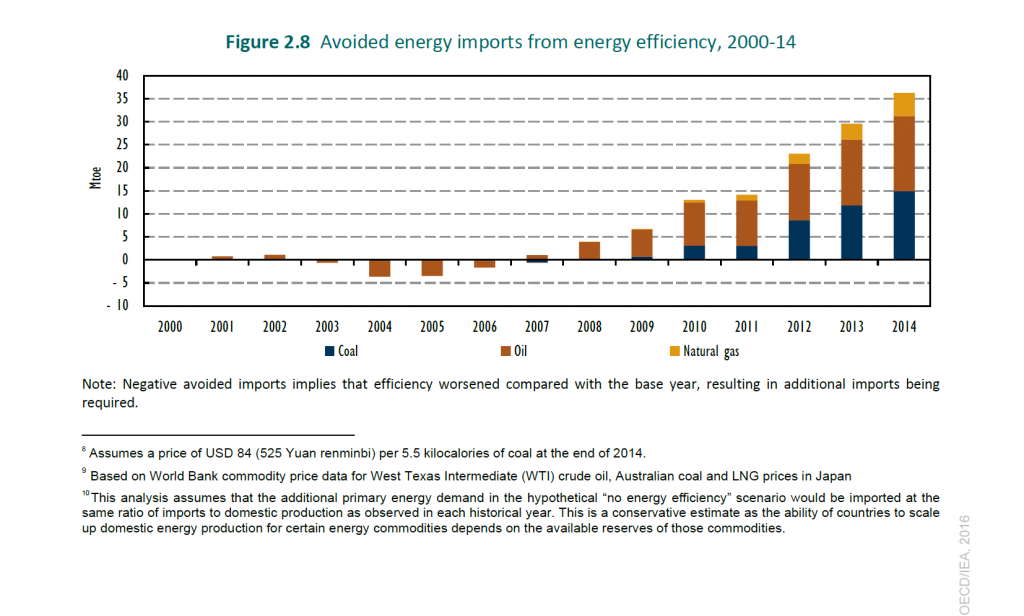
Improving power plants and vehicles to burn less fuel and revamping power grids to transmit electricity can be cheaper than increasing supply. Two decades ago, surging energy demand led to a surge in pollution now blamed for causing global warming.
China led the pack of nations surveyed by the IEA in making efficiency gains, reducing its energy intensity 5.6 percent last year. That’s more than the 3.1 percent reading over the previous decade. It invested $370 billion in efficiency from 2006 to 2014, saving as much as 497 gigawatts, equivalent to all of the country’s installed renewable generation.
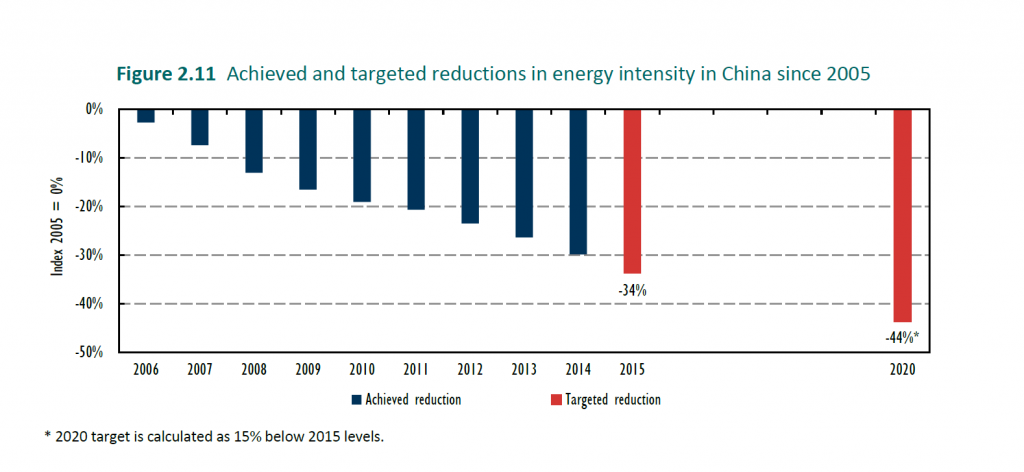
The efficiency gains came in spite of cheaper fossil fuels. The price of crude oil has dropped about 55 percent since its peak in 2014. An emerging glut of gas is leading to significant drops in cost, with tankers of the commodity in its liquid form seeking buyers.
Government policy setting standards on everything from cars to buildings to appliances has been the main driver behind the efficiency push, the IEA said. Most of the initiatives have been financed by private companies.
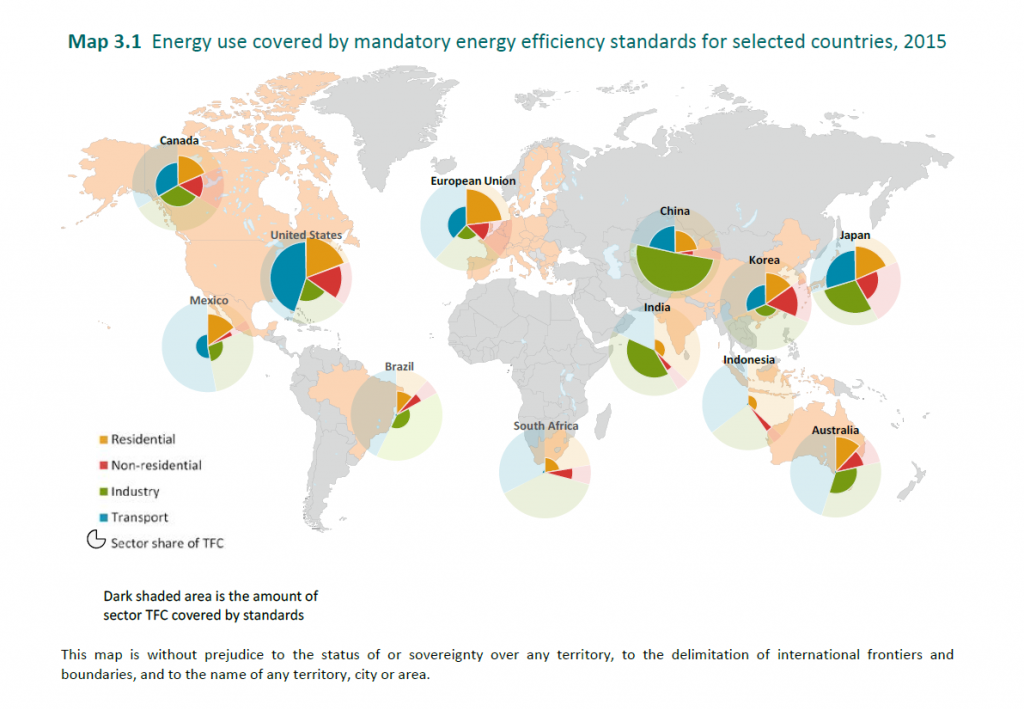
Stricter mileage rules on cars and light trucks led to an overall reduction of 2.3 million barrels of oil per day last year, which is the equivalent of 2.5 percent of daily oil supply.
The IEA estimated its 29 member countries saved enough energy between 2000 and 2015 to power all of Japan for a year, or 450 million tons of oil equivalent.
The institution says even those gains aren’t enough to curb global warming. An overall decrease of at least 2.6 percent would be needed to reach the climate goals set out in the Paris agreement sealed in December, the report said.
Source : Bloomberg



